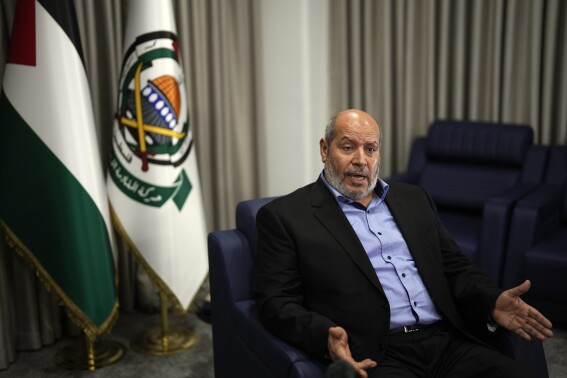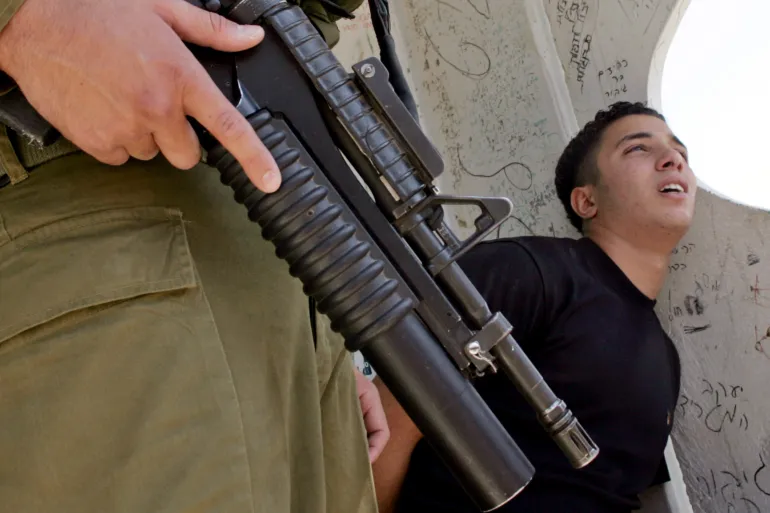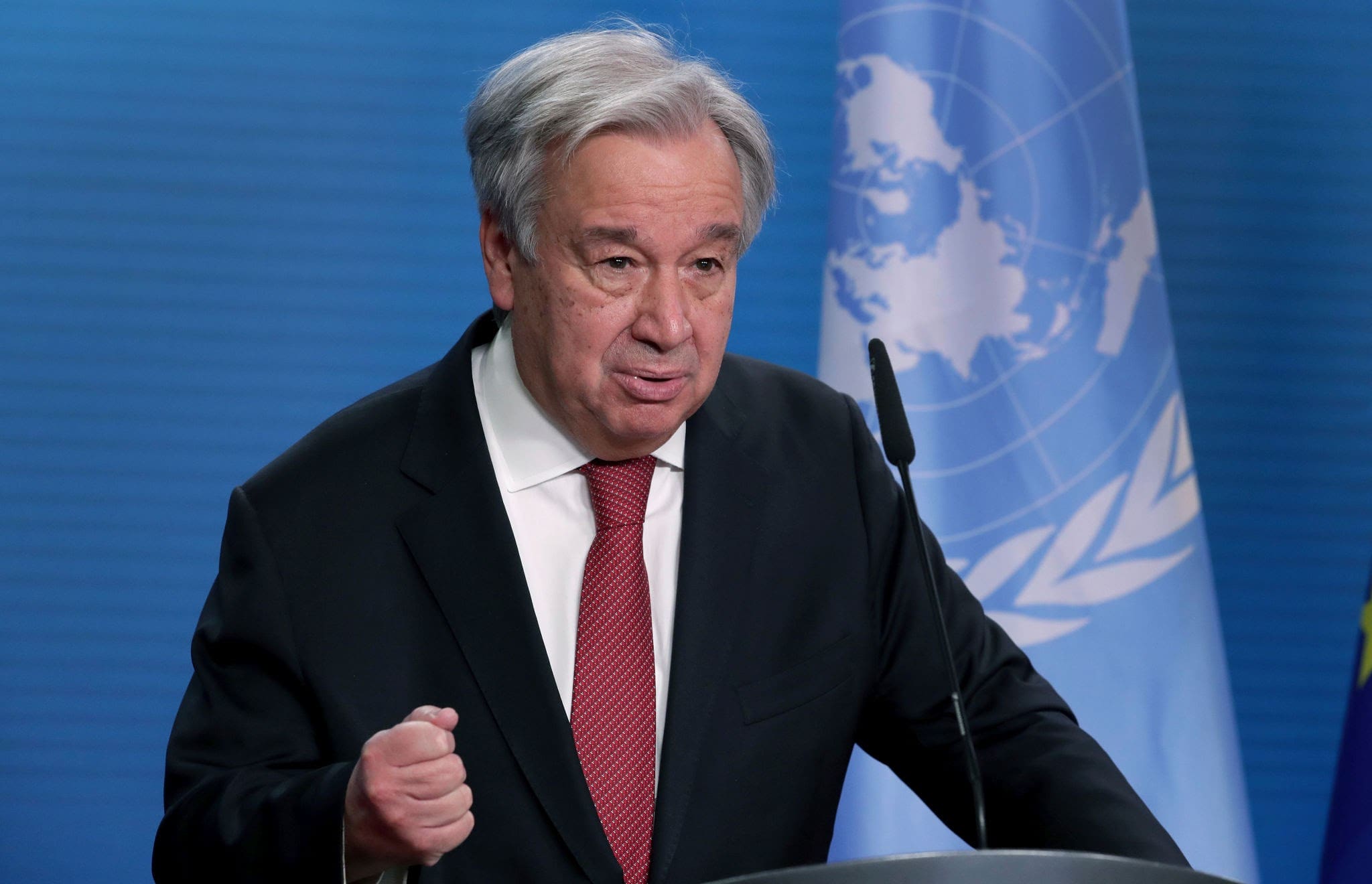The United Nations has strayed far from its mission of safeguarding peace. By refusing to condemn terrorist organizations and instead focusing its criticisms on Israel, the UN is enabling a dangerous double standard. Groups like Hamas, Hezbollah, and Iran’s other proxies are treated as legitimate actors, while Israel is punished for defending itself.
This is not neutrality—this is siding with terrorists. And as long as the United Nations continues on this path, it will remain complicit in the very violence it was founded to prevent.
The United Nations, under António Guterres’ leadership, has increasingly become a platform that, whether through inaction or outright bias, lends legitimacy to terrorist organizations. The UN, an institution originally designed to uphold peace and security, has shifted toward excusing or even tacitly supporting groups that engage in systematic violence against civilians. This growing alignment with terrorist entities, particularly those targeting Israel, raises troubling questions about the organization’s current agenda.
Silence on Terrorist Atrocities
The UN’s silence on the relentless terrorist attacks against Israel is not accidental. Time and again, terrorist organizations like Hamas, Hezbollah, and other Iranian-backed proxies have launched deadly assaults on Israeli civilians. These groups are responsible for the October 7, 2023, massacre, the daily rocket fire from Gaza, and countless other atrocities over the years. Yet, the United Nations consistently fails to directly condemn these terrorist organizations for their crimes. Instead, the focus shifts toward condemning Israel for defending itself.
This repeated failure to address the root cause of violence—the terrorist networks themselves—amounts to implicit support. By refusing to call out groups like Hamas for what they are—terrorist organizations bent on Israel’s destruction—the UN sends a message that these groups are legitimate actors, not violent extremists.
Double Standards: Israel Under Fire
Whenever Israel responds to terrorist attacks, the UN is quick to issue condemnations or calls for restraint. But what about when terrorist organizations use human shields, launch rockets from civilian areas, and put their own people in harm’s way? The UN conveniently glosses over these details, instead portraying Israel’s defensive actions as disproportionate. This dangerous narrative not only emboldens terrorists but paints Israel, the victim of these attacks, as the aggressor.
Take Hezbollah in Lebanon, for example. This Iranian proxy has stockpiled tens of thousands of rockets aimed at Israeli civilians, yet the UN remains largely silent on Hezbollah’s provocations. Similarly, when Iranian-backed militias launch attacks from Syria or Iraq, there’s little more than a shrug from the international body. This double standard, where terrorists get a pass and Israel is condemned for survival, fuels further violence and undermines peace.
The Shield of “Human Rights”
One of the most effective tools the UN uses to shield terrorists from scrutiny is the language of human rights. Organizations like Hamas, which routinely violate human rights—whether through indiscriminate rocket fire, the kidnapping and abuse of civilians, or using their own population as pawns—are rarely held accountable. Instead, the UN frequently cites concerns about Israel’s military actions while ignoring the fact that these actions are a response to terrorist aggression.
Human rights language is weaponized to create a false equivalency between a democratic state like Israel and terrorist organizations whose sole objective is to destroy it. This distortion of the human rights framework not only delegitimizes Israel’s right to defend its citizens but also allows terrorists to operate without fear of real consequences.
Iran: The Elephant in the Room
At the core of much of the Middle East’s terror network is Iran, the world’s leading state sponsor of terrorism. From Hamas and Hezbollah to militias in Syria and Iraq, Iran funds, trains, and arms these groups with the singular goal of annihilating Israel and spreading its influence. Yet the United Nations, particularly under Guterres, rarely condemns Iran’s direct role in orchestrating these attacks.
By failing to call out Iran, the UN is effectively protecting the very source of the region’s instability. This avoidance of Iran’s culpability allows terrorist organizations to flourish and continue their campaigns of violence, knowing that they have a powerful state actor—and by extension, the UN—on their side.
Why Does the UN Protect Terrorists?
At its heart, the UN’s alignment with terrorists can be traced to a mix of political bias, moral cowardice, and the growing influence of countries and blocs hostile to Israel. The UN, with its complex web of member states, often sees countries like Iran and their allies wield significant influence within the General Assembly. These states push agendas that shield terrorist organizations and deflect criticism from their own actions.
Additionally, the United Nations’ leadership has failed to maintain impartiality. Rather than stand firmly against terrorism, Guterres and other officials prioritize diplomacy over justice, offering moral equivalence between Israel and groups like Hamas. This appeasement strategy may buy short-term calm, but it only emboldens terrorists, who interpret the UN’s hesitancy as tacit approval of their tactics.






